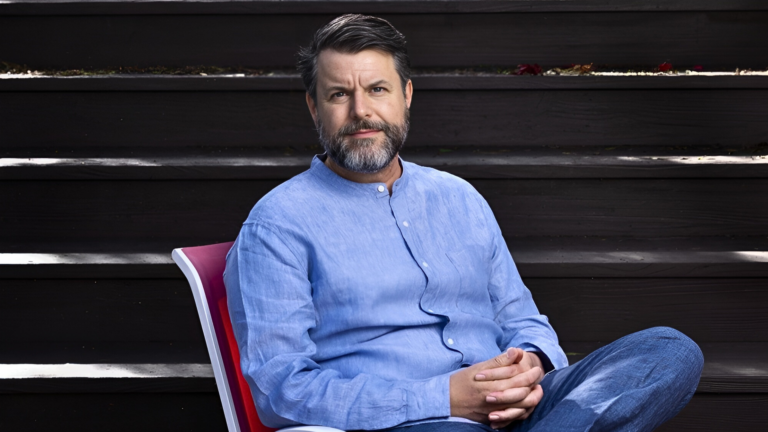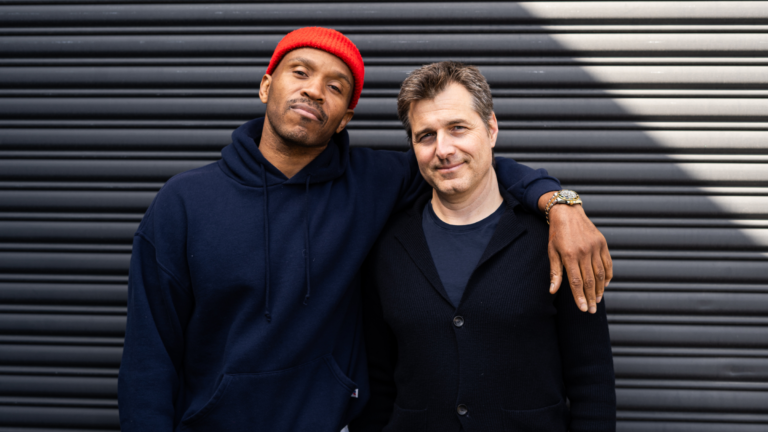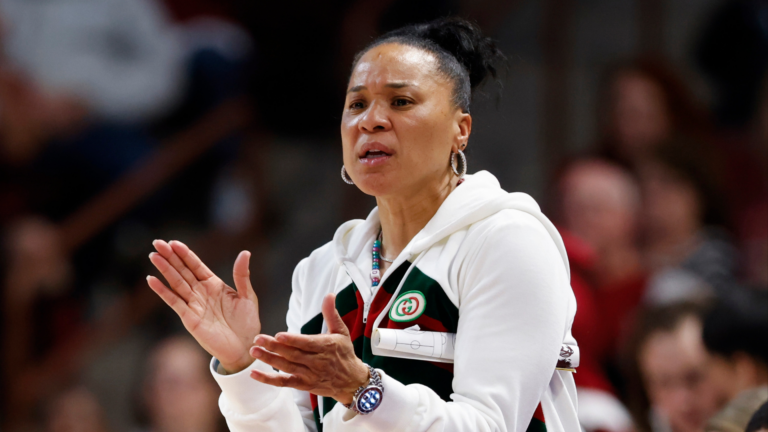This week’s conversation is with Rich Roll – if you’ve listened to Finding Mastery for a while you know the name – this is his third time on the podcast and he’s someone I just love getting a chance to chat with.
For those of you unfamiliar with Rich, he was named one of the “25 Fittest Men in the World” by Men’s Fitness and “The World’s Fittest Vegan” by Men’s Health.
Rich is a globally renown ultra-endurance athlete, wellness advocate, bestselling author, husband and father of four.
When he isn’t lost on a trail or spending time with his wife Julie, their four children and two Great Pyrenees, he hosts the wildly popular Rich Roll Podcast, one of the top 100 podcasts in the world.Rich also has a new book coming out titled, Voicing Change, set for release in November 2020.
It felt very timely to speak with Rich again – he knows what rock-bottom feels like and he found a way to put his life back together.
With how much current uncertainty there is in the world, I wanted to get a feel for how he’s approaching this year – specifically what his past experiences have taught him about how to respond when things feel like they’re collapsing from all sides.
“If you’re stuck, if you’re struggling, if you’re being dismantled, if you feel like your life is getting pulled out from underneath you, I say congratulations. What a fucking opportunity that is. You are being given an opportunity to look at yourself and reconstruct your life from the ground up. Not everybody gets that opportunity. Lean into it.”
In This Episode:
Does Fear of Others Opinions (FOPO) show up for him?
Oh, yeah. Tons. I’ve done a lot of work to transcend that, but it’s very present in my life. I mean, my arc has been one of being a prisoner of that. Not just random other people, but my home environments and just kind of the social expectations of the environment in which I was brought up. And I had to reach some pretty significant pain moments that forced me to confront that in a profound way. And I’ve worked very hard to craft and cultivate a life that is outside of that rubric, but I’ll find myself in a situation like we’re in right now. It’s like, I want your respect. I want you to like me. What do I need to say and do so that I can covet favor in the Michael Gervais universe? That’s always going on.
How does he manage it?
I call myself out on it like I just did. I bring voice to it. I’m letting you know that this is part of who I am and that is integral to what it means to be authentic. I think a former version of myself would have been too ashamed or afraid to admit that I would like you to like me or that I want to make sure that I come off well, but I’ve let go of that. And part of letting it go is to acknowledge that it exists within me and the work is really the awareness around it and then the tools to like quality ego.
Where did he first notice that fear?
I don’t know that there was a discrete or distinct moment where that became consciously apparent. I think on a semi-unconscious level, I’ve always known it was there. I grew up in a household where there were certain expectations about how to be and what to do and the trajectory that you were on. And I accepted those, but I was also aware that from a very early age that I was kind of like a square peg, trying to jam into a round hole, but I was determined to make that square peg fit into the round hole. And I did it and I did it and I did it and I did it until I reached an inflection point, like a crisis point where it just was no longer possible for me to do that.
Swimming at Stanford
I think that swimming was really my first drug of choice. I think I was insecure kid who really struggled with how to fit in and how to be, and swimming was a safe place. And it was the one thing that I had any demonstrable acumen or talent in. And I doubled down on that. And I think I saw it as a way out and a way through, as well as kind of this womb-like container that allowed me to opt out of the outside world that was causing some kind of stress and anxiety for me.
How did he get to the place where he wanted to fundamentally change his life?
Pain’s been my greatest teacher. I’m grateful that I hit bottom. There’s plenty of people that can perpetuate unhealthy habits for the course of their life and it never gets bad enough that they have to really confront themselves at that level of profundity. So to that extent, I’m very grateful that I’ve hit these moments, these roadblocks in my life that have forced me to stop and take stock and inventory of how I was living. And those experience have compelled me to ask the hard questions. What am I doing here? Why have I made these choices about my career? Who is it that I really want to be?
The process of change
My experience is that this was very inelegant and very slow. It required a tremendous amount of patience, a lot of mistakes, and a lot of hard work and fundamentally understanding that there are very few things that I have control over, but the things I do have control over are my thoughts, my behaviors, my actions, my reactions to the world. And I devoted myself to focusing on honing those things and trying to attempt to get clear on what it was that uniquely made me me and what song it was that I wanted to sing. And that’s a constantly evolving thing. I didn’t have an epiphany and then break out a whiteboard and create some kind of roadmap to get to this place where I’m sitting across from you, having a conversation, is very much in the moment trying to be in tune with myself and what would potentially get me excited to get out of bed in the morning.
What’s his message to people who are struggling?
If you’re stuck, if you’re struggling, if you’re being dismantled, if you feel like your life is getting pulled out from underneath you, I say congratulations. What a fucking opportunity that is. You are being given an opportunity to look at yourself and reconstruct your life from the ground up. Not everybody gets that opportunity. Lean into it. Our instinct is to shun it or avoid it or pretend it’s not there, but the truth is there’s this incredible gift if you move towards it. We’re here to grow. We’re here to learn. And we’re taught that our lives, that the lives best lived are the ones that are strife free, the ones that are free of trauma and tragedy, but that’s just not the case in anybody I’ve met. And certainly the interesting people that I’ve met. It’s that struggle, it’s that confrontation with what? You’re grappling with that is like the stuff of life. And it holds the potential energy to create something entirely new if you’re willing to respect it and give it the attention it deserves. When you’re in that place, it can feel like you’re going to be there forever. But if you devote yourself to that path of self-understanding and you respect the struggle and engage it with everything that you have, I’m convinced that no problem is unsolvable, because I’ve seen thousands of lives transformed over the years. So I think it’s a beautiful thing. So if you can tweak your lens on it and perceive it through that kind of perspective, perhaps it will energize you to move forward in a different way.
How is he dealing with the high uncertainty of our current global climate, both in business and in health?
I’m essentially an introvert. When this all began, I thought, well, I’ll just hole up at home. I’m fine. I can just do my thing and nobody will bug me. It kind of sounds good. But that’s worn thin and I found myself despairing at lack of contact with my friends. My recovery community moved to Zoom, just like everybody’s work situation. And we’re finding ourselves staring at screens all day long. And it’s hard, man. It’s hard. I think at the same time I’ve made sure that I’ve maintained my health. It’s not an excuse to sit on the couch and eat Cheetos. And I live in a beautiful part of the world where I can still go outside and trail run and exercise and do the things that I love. So I’m very lucky and grateful that I can pursue the living that I have and do the things that nourish me. So I’m one of the fortunate ones, but it’s paid a toll on me psychologically. So I go through that process just like anybody else, but I think overall, lately I’m energized by identifying the opportunity. Now everybody’s in repose, nobody’s really doing very much and I’m like, I’m ready to go. I finished a book during this period of time. We’re moving our podcast into a studio. I’m investing in myself. When everybody’s afraid, I’m moving forward. It’s like, if you’re zigging, how can I zag? Where can I find the sliver of opportunity here that perhaps is being overlooked by other people.
How is he taking care of himself during COVID?
Well, I’m trying to make sure that I don’t have any co-morbidity factors, like trying to be healthy. So exercising every day, but not over-exercising or over-training that I’m running myself down. I don’t think that’s wise. In the early parts of the pandemic, you would see all these people doing crazy challenges, like running a marathon in their apartment or doing something that’s like wildly disproportionate to whatever their fitness level was. And I just remember thinking, that’s irresponsible right now. We don’t want to be rundown and fatigued. We want to be at our best. So having a balance with the exercise, making sure that I’m getting enough sleep, staying hydrated, using my woop to make sure my body’s recovering on a day-to-day basis, supplementing with vitamin D and zinc and vitamin C.
How does he think about something that doesn’t go according to plan?
You move on. I’m not in control of the results. It goes back to controlling the controllables. I can control my work ethic, my output, what I put into something. I can’t control how it will be received or the end result of that. And the longer I do this, the more … I’ve been around for a while. It just gets easier to let stuff like that roll off your back. You allow yourself to feel the natural feelings of disappointment that come with that. But I think through that healthy relationship, between process and outcome and through mindfulness practices, the half life of that emotional reaction is much shorter. So you become more resilient and you’re able to bounce back more quickly. So it’s not that you’re not bummed. I’m a human being. If something doesn’t go my way, I can be disappointed, I can be upset, but I’m able to recalibrate more quickly and get back on track.
When he’s at his best where does he speak from?
When I’m at my best, I’m speaking from the heart, where my mind is out of the way.
A high performance mindset is…
Focused, intentional and defined by a work ethic, like a capacity to handle a level of volume that most people can’t. And to do that with grace and inability to patiently persevere, like to play the long game.
What does he feel like he has a responsibility to talk about the racial discrepancies in our country?
Exploring it and talking about it publicly feels not only like the right thing to do, but a responsibility that I take seriously. It’s a new experience. There’s a level of vulnerability with it as well, because I’m not as well versed in this world as I am in some of the other areas that I explore on my podcast, but this is a very important moment right now. And I think it’s incumbent upon someone like myself, who has a platform and who also is white and comes from a place of privilege, to leverage that platform, to participate in the conversations that we need to have around race. And it’s delicate and it’s sensitive. And I’m not always going to do it right or say the right thing or express myself in a manner that’s going to be acceptable to everybody. It’d be very easy to just stay in my lane and do that same thing. But I can’t look at my daughters two years from now and justify that move. I just can’t.
Does he worry about alienating his listeners?
It is the right thing to do to stand up right now and we need these conversations. We need this change, now more than ever. It’s overdue, and I’m just not going to be on the wrong side of history on this. And if that means that I’m alienating a significant portion of my audience, then so be it, it goes to the faux boat thing. So it’s like, all right, I’m in this crucible, but this is my opportunity to really challenge my relationship with needing to be liked and approved. What do I stand for? What is important? What is meaningful? Why am I doing any of this? If it’s not for the greater good. All of that has to become secondary to the mission of trying to facilitate healthy, nuanced conversations around things that matter, because truly, and I believe this, meaningful conversations are the cure to these problems. You’ve experienced that in doing what we both do. And it’s time to double down on that.


